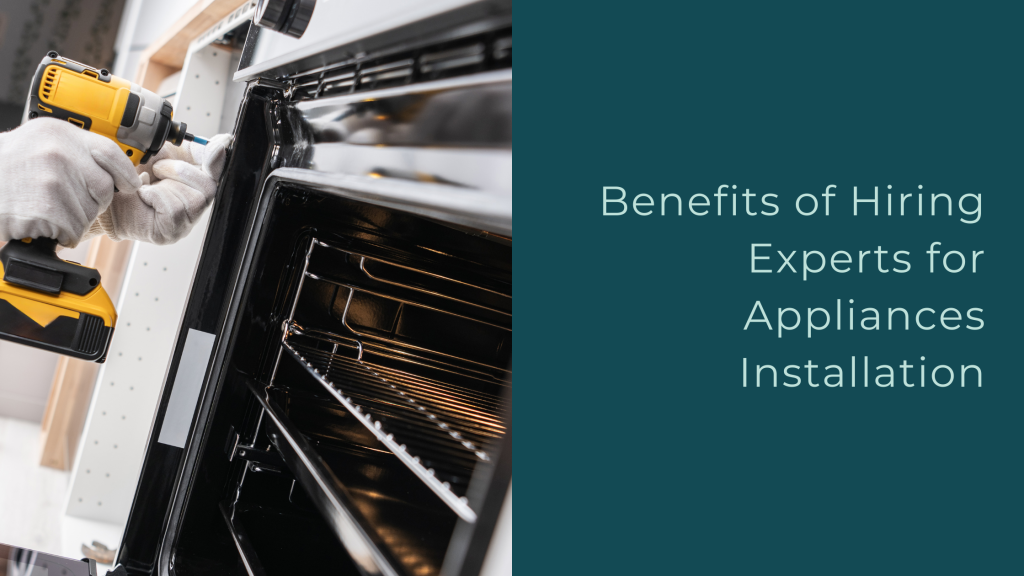Introduction to Appliances Installation
Modern homes rely on a wide range of appliances that simplify daily living. From refrigerators and washing machines to dishwashers and ovens, these devices have become essential. However, the convenience they provide often depends on how well they are initially set up. Appliance installation might seem simple at first glance, but in reality, it involves technical steps, knowledge of wiring, and attention to safety protocols. Mistakes during setup can damage the appliance, increase energy consumption, or even create hazards inside the home.
Many homeowners search online for quick guides on how to appliance installation, thinking they can complete the task with basic tools. While some minor appliances can be set up with minimal effort, larger units such as ovens, dryers, or dishwashers demand expertise. Choosing professional help not only saves time but also ensures that the appliance functions correctly from day one.
Tools and Materials Required
If you attempt to set up an appliance yourself, you will soon realize that more than just a screwdriver and pliers are needed. Common tools and materials often required include:
- Adjustable wrenches
- Power drills
- Measuring tape
- Wire cutters and connectors
- Leveling tools
- Specialized hoses and fittings
- Voltage testers
Even with these tools in hand, it can be challenging for an average homeowner to handle the complexities of professional appliance installation. For example, connecting a washing machine may require dealing with both water supply lines and electrical outlets. Similarly, installing a gas stove involves precise alignment and secure gas line connections, where even the smallest mistake can be dangerous.
Experts not only come equipped with all the right tools but also bring experience that allows them to identify potential issues before they cause problems.
Step-by-Step Instructions
Many online resources outline basic steps for installing appliances. These usually include unboxing, positioning, leveling, connecting to the power or water source, and running a test cycle. While the process looks straightforward on paper, each step can be tricky in practice.
- Unboxing and inspection: Check for visible damage and ensure that all parts are included.
- Positioning: Place the appliance in the correct spot, keeping proper clearance for ventilation and easy access to connections.
- Leveling: Appliances such as washing machines or refrigerators need to be level to function properly and avoid noise or damage.
- Connecting: This step involves hooking up water supply hoses, gas lines, or electrical wiring. Mistakes here can lead to leaks, short circuits, or poor efficiency.
- Testing: A trial run ensures that everything is connected securely and the appliance is operating as intended.
Although these steps appear simple, many problems can arise if you lack expertise. A misaligned connection or an unsecured hose could lead to leaks or electrical hazards. This is why leaving the task to professionals provides peace of mind.
Safety Tips and Best Practices
Safety is one of the main reasons to hire experts for appliance installation. When dealing with heavy appliances, there is always a risk of injury from lifting and moving. Additionally, improper handling of electrical connections can result in shocks or even fires.
Here are some important safety tips:
- Always turn off power at the circuit breaker before connecting electrical appliances.
- Ensure that water and gas lines are properly sealed.
- Avoid using extension cords for high-power appliances, as this can lead to overheating.
- Double-check grounding requirements for appliances like refrigerators or dishwashers.
Professional installers follow these best practices without compromise. They are trained to notice hidden risks that an inexperienced homeowner might overlook. Their knowledge not only protects the household but also extends the lifespan of the appliance.
Final Thoughts and Maintenance Tips
Hiring experts for appliance installation is an investment in long-term convenience and safety. While it may be tempting to attempt the process independently, the risks often outweigh the potential savings. Professional services ensure that your appliances work at their full capacity while complying with safety standards.
Once installation is complete, proper maintenance helps keep appliances in good condition. Homeowners should clean filters regularly, inspect hoses for leaks, and schedule occasional check-ups. Keeping the area around the appliance dust-free and ensuring proper ventilation also helps prevent future problems.In conclusion, the benefits of hiring experts are clear. You gain peace of mind, protect your investment, and enjoy the full performance of your appliances without worrying about hidden issues. Instead of spending hours researching how to appliances installation, trust professionals who bring the right tools, training, and experience to get the job done safely and efficiently.



